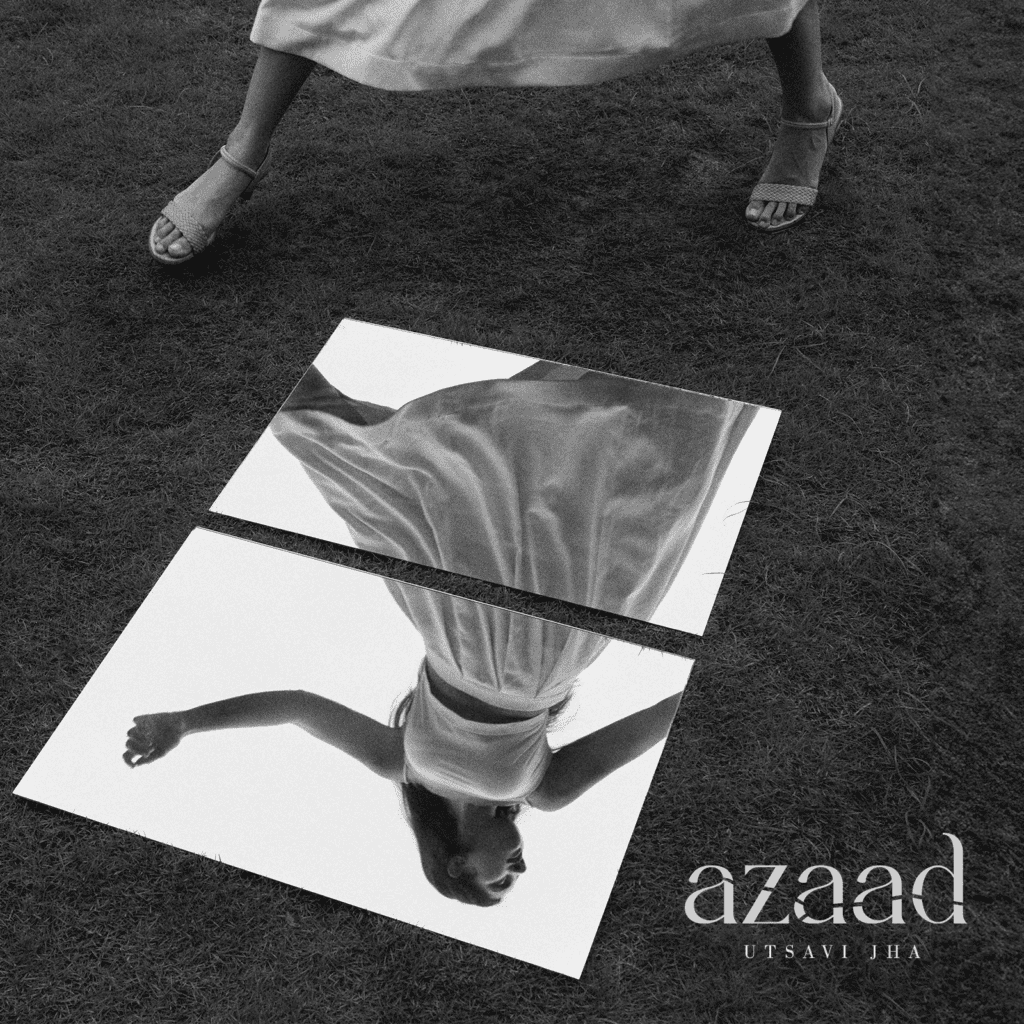Utsavi Jha’s strongest suit, as demonstrated by her new EP, Khata — is her voice. In the record that has her singing and exploring 5 different stages of heartbreak, she does runs, makes it airy, taps into her lower register, and paired with her introspective songwriting, she makes a project that works as a strong personal product of artistry.The EP is polished, not jagged around the edges, and has the tonality of something that could easily be picked up for the soundtrack for any Indian new age visual media programming, centralizing the trials and tribulations of someone in the panging years of adulting — in spite of its intentional fragmentary nature that gives it its personal quality.
The lyrics have dark, moody notes, sometimes pleading, sometimes assertive — creating the composite nature of a heartbreak and a person dealing with it. One is reminded of Jha’s contemporaries, Kamakshi Khanna, and Frizzell D’Souza and their respective projects this year. However, Jha forays her own path into her own creative niche with her sort of longing resignation and sense of resilience translating into the niche. The production is mostly muted, electronic, and as aforementioned, prioritizes the vocal character of Jha.
The percussion is fun, especially on Azaad — and the synthwork is stimulating. At some points on the record, one is driven to draw a comparison or two with Nikita Gandhi, especially on projects where she departs from the Bolly-pop vocal aesthetic and steps into more anglicised stylistics. One of the most exciting numbers on the track is Mujhe Jaane Do, which I personally believe has Jha at her most soothing, elegant, and one of the tracks which makes you desire her lower register more on the record.

The artwork for this track has Jha with an outstretched hand, and has the construction to enable a sonic catharsis, something that she has been lyrically trying to achieve on the whole project as well. Tum Kyun sounds very similar to Anuv Jain’s Baarishein, but perhaps a more internal perception on topics that broach similar conversations and lyricism. Kaisi Hoon Poocho Na is another standout, and it manages to establish that relatable feeling of yearning and the quest for a sense of belonging, or at least deserving of concern.
Overall, the project is strong, personal, and yet distributive in its influences that increases its marketability. Jha has perfected her vocal delivery in a way that resonates with the kind of emotional realism that she is trying to get toward. What however happens to be the problem is the lack of experimentation — and it is primarily the production that holds it back in terms of its individuality. The project is good, but not that easily distinguishable from all the contemporary records released this year in the same category as hers. This, I feel is unfair to Jha’s artistry as a whole, and her abilities, which are exhibited in her lyricism and her singing which she holds back on at many places, restraining herself to achieve a particular sonic aesthetic. A little investment in creating soundscapes that are a little sonically unique would go a long way for her — because she has the makings of a proper force in the genre she is working in the Indian music scene.





























